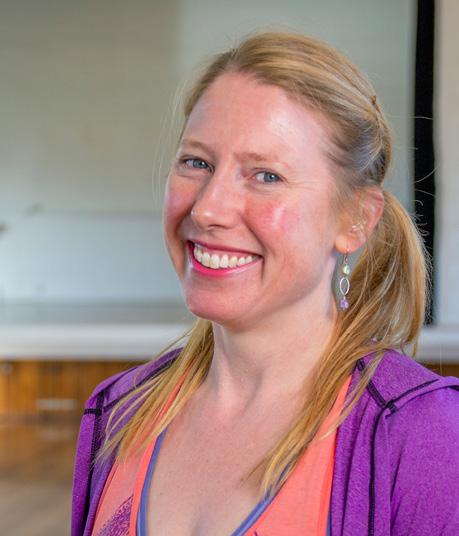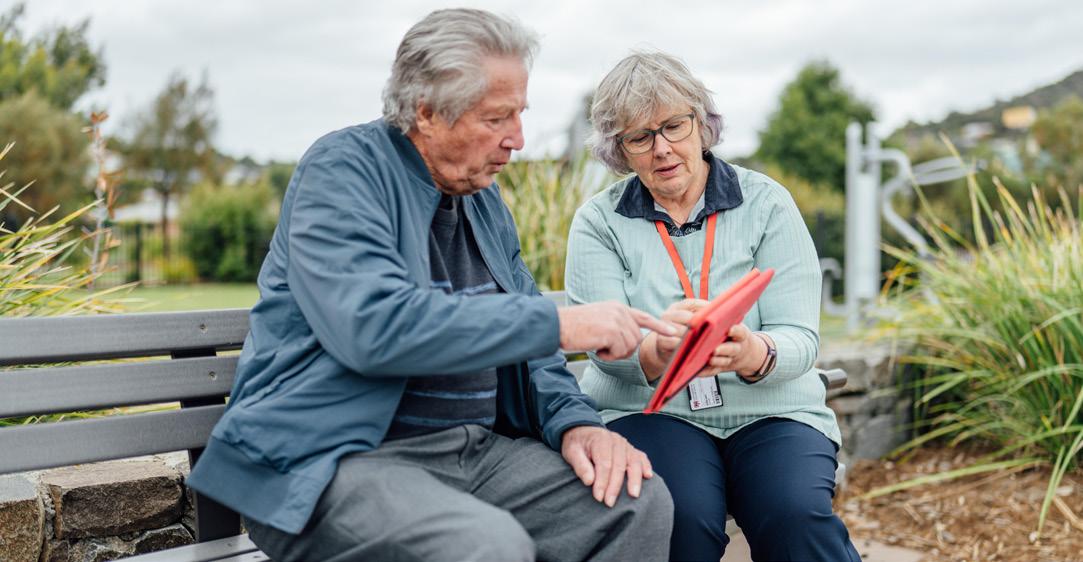
3 minute read
Island of hope to the world
THE WICKING CENTRE WILL RECRUIT 20,000 PARTICIPANTS FOR A WORLD-FIRST STUDY
Tasmania is a small island that thinks big.
This is no more evident than in its world-leading approach to tackling dementia, one of the main causes of death and disability in Australia.
An ambitious, world-first project aims to use the population of Tasmania as a “test bed” for reducing the incidence of dementia in the entire population.
The Island Study Linking Ageing and Neurodegenerative Disease (ISLAND) project aims to illustrate how we can ‘self-manage’ behaviours that can increase the risk of dementia.
While the most significant risk factor associated with dementia is ageing, international research indicates that behavioural changes, such as adjusting diet and exercise routines, improving social contact or pursuing further education, could prevent one third of dementia cases.
The ISLAND project, run by the University of Tasmania’s Wicking Dementia and Research Centre, will recruit 20,000 participants.
Tasmania is ideally placed for the bold experiment that could result in improving the health of current and future generations.
It has one of the oldest populations in Australia and high rates of known modifiable risk factors.
The ISLAND project offers participants free evidence-based education, via the highly successful Preventing Dementia online course.
The Wicking Centre Massive Open Online Courses (MOOCs) are recognised as world class, and so far more than 450,000 people have enrolled in them. The Wicking’s Director Professor James Vickers said it was the first dementia study in the world to target a whole population through a public health and educational campaign.
“We’re really looking at using the entire state of Tasmania as a test bed to see if we can reduce the risk of dementia,” Professor Vickers said.
“If this approach proves to be successful in engaging a substantial number of participants, the ISLAND approach can be extended nationally and internationally.
“The ISLAND includes a focus on factors such as blood pressure, smoking and physical activity, important factors for a range of health conditions in addition to dementia, so there may be wider benefits for being involved in the program, especially in the area of chronic illness.”

The ISLAND project, run by the University of Tasmania’s Wicking Dementia and Research Centre, will recruit 20,000 participants. Image: Osborne images
Philanthropy is crucial to this mission.
The University of Tasmania’s generous donor community has shown this is a health challenge close to their hearts.
In 2020, MOOC participants were asked if they would like to support the Wicking Dementia Research and Education Centre’s efforts. Almost 500 individuals, most of whom were giving for the first time, donated $30,000 to the Wicking Appeal.
Tania Nelson has seen first-hand the positive impact of exercise. She teaches Zumba Gold® fitness to older, active adults enthusiastic about maintaining their brain health, physical, emotional and social health, and wellbeing.
To support the Wicking, she held a fundraiser with her Kingston Beach and Huonville classes where they “danced around the world” for a good cause.
“I participated in the MOOC last year and wished to give back to Wicking as I am passionate about prevention of chronic disease and health promotion,” Tania said. “I trained and worked as a behavioural scientist, psychotherapist and rehabilitation counsellor and now as a personal trainer and fitness instructor.”
Tania also holds Zumba chair sessions in residential aged care facilities with people living with dementia and their carers.
“The joy and connectivity I witness is beyond words!” she said.
“It is a beautiful and inclusive way to encourage people with limited mobility and neurological impairment to express themselves and to reminisce (using music that they know, can sing along with) and also to move in respect to their capacity.”
With the help our wonderful community of donors, the ISLAND project will continue its important and impactful work that could become an exemplar for the rest of the world, driving global efforts to turn the tide on dementia.
To find out more about the ISLAND project, or how you can support the Wicking Dementia and Research Centre, please visit utas.edu.au/wicking










